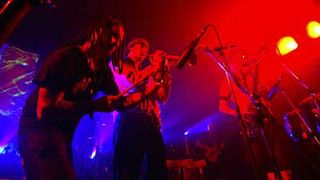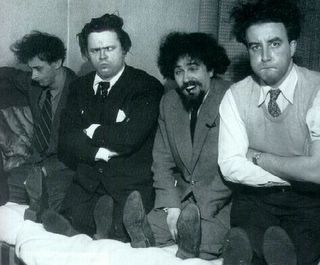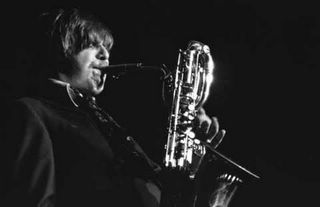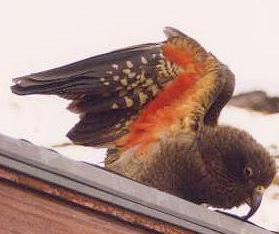Beck - He's a Mighty Good Leader
From
One Foot in the Grave: K Records KLP 28
[Buy]I don't often blog about stuff that happens at work, but some recent experiences have meant I've been confronting the importance of leadership in the past few weeks and months.
Earlier this year, I was promoted into a position of some fairly decent responsibility, including being the leader of a team of people for the first time. Now everyone I've talked to says that I've done a good job so far in leading my team - making sure that people are kept busy and interested, making sure that people hit their deadlines and that the people in my team are valued. (I know, this all sounds very touchy-feely and managerial, but it's all true. If you treat your team with arrogance or disrespect, you wont be able to do your job either).
However, after assuming this new position as a "manager", I lost a lot of the support I used to get when someone else was supervising me! So I did my own job, but I actually missed having oversight, having someone take an interest in what I was doing. I didn't know whether I was doing a good job, because nobody was really telling me if I was doing a good job or not... A friend of mine calls this experience "the loneliness of command".
But things have changed just in the past few weeks, since the team has restructured. I still do the same job, but I now have a more immediate uber-supervisor, who is checking on me to make sure that things get done, and kicking me in the butt (in the nicest possible way) to make sure I keep stuff happening. So now I am busier than ever, but enjoying work a lot more because I have a leader, and the experience of command has lost its loneliness.
So I guess what I'm learning is that leadership works both ways. Even the leaders need leadership. I think often in the capitalist West, we are encouraged in the ideal of individuality and independence, and there is the expectation that everyone must always live up to some crazy ideal of infallibility. I think sometimes we get so caught up in trying to emulate some concept of icy perfection and total competence, that we forget that it is OK to be a follower, too. And no matter how much "responsibility" you have, no matter how many other people you're in charge of, there is comfort in knowing that someone else watching over what you're doing.

























